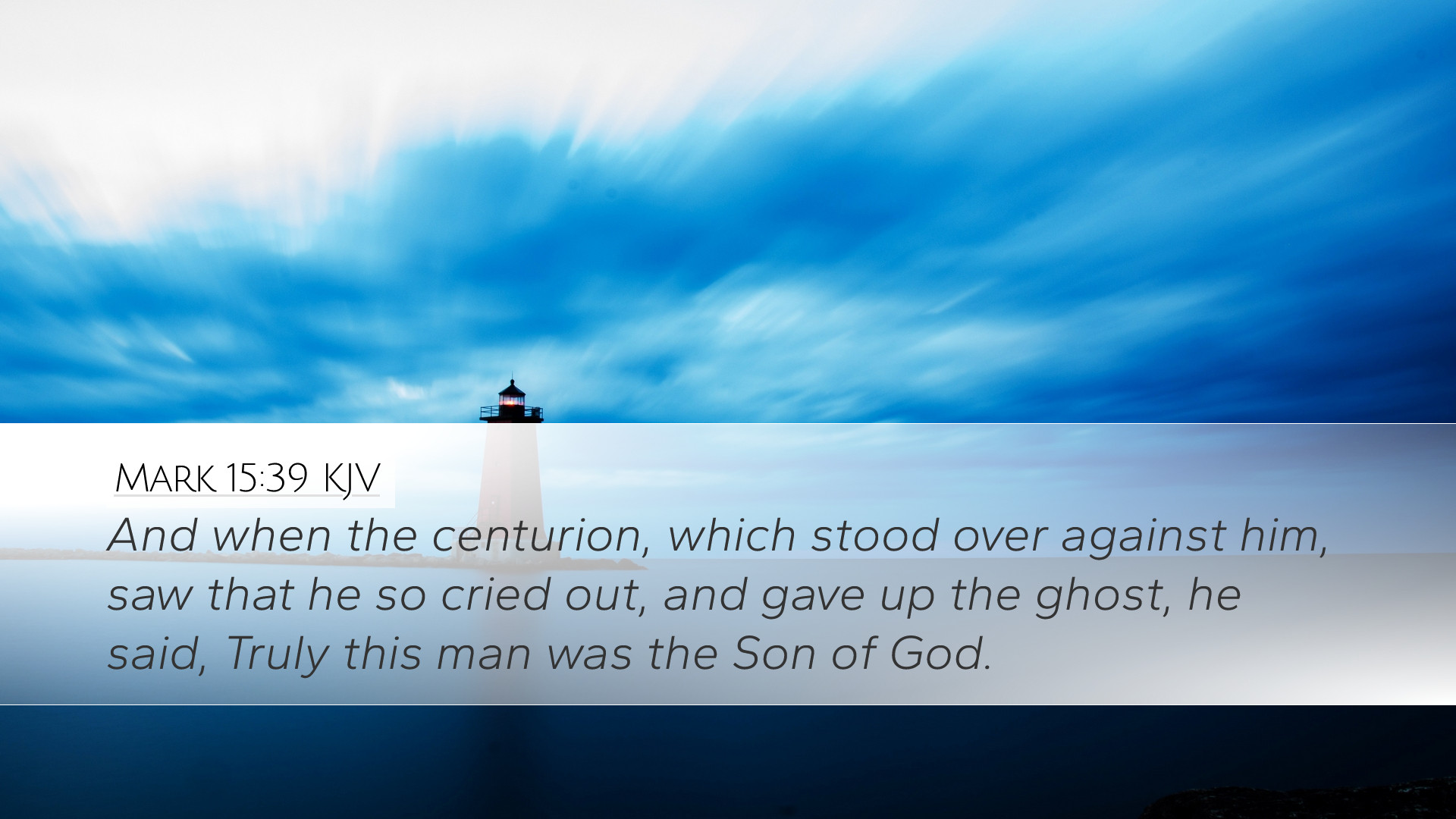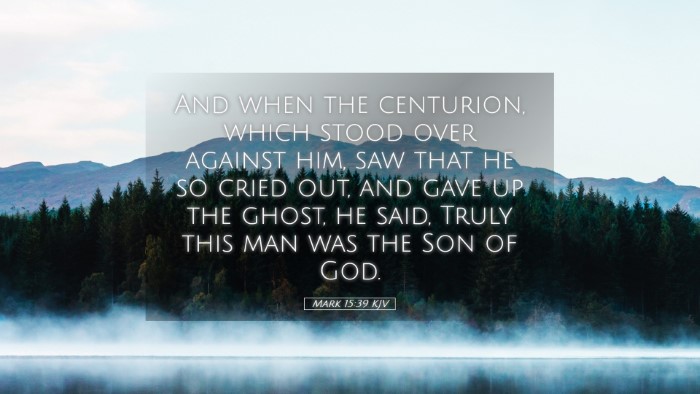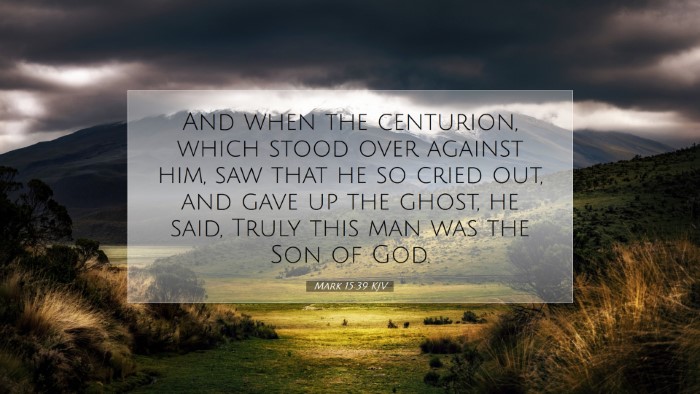Commentary on Mark 15:39
Mark 15:39 states: "And when the centurion, who stood opposite Him, saw that He cried out like this and breathed His last, he said, 'Truly this Man was the Son of God!'" This verse occurs in the climactic moment of Jesus’ crucifixion, and it is rich in theological significance and implications for understanding the identity of Christ.
Contextual Background
This verse appears in the context of the Passion narrative, encapsulating the events surrounding Jesus' trial, crucifixion, and death. According to previous verses, Jesus is mocked, beaten, and ultimately crucified, enduring tremendous suffering as He fulfills the divine plan of redemption. Understanding this context is crucial as it shapes the significance of the centurion's declaration.
Insights from Public Domain Commentaries
Matthew Henry's Commentary
Matthew Henry emphasizes the profound moment of recognition from the centurion. He notes that the centurion, a Roman officer, stood opposite to Jesus, witnessing the death of the Savior. His perspective is significant as a representative of Gentile authority. Henry points out that the centurion’s strong declaration, “Truly this Man was the Son of God,” indicates a transformative realization brought on by the events of the crucifixion.
- Divine Revelation: Henry highlights that the recognition came after the centurion observed the manner in which Jesus died—His forgiveness and grace amidst suffering—to which he had never seen any other person respond.
- The Call to Faith: The commentary suggests that the centurion stands as an archetype for all believers. His response reflects that genuine faith comes from recognizing the true nature of Christ, which is a call for all who observe to respond in kind.
Albert Barnes' Notes on the Bible
Albert Barnes provides a detailed analysis of the text, observing the significance of the centurion's position. He argues that the centurion was likely officially tasked with overseeing the execution, which adds credibility to his testimony. Upon witnessing the events surrounding Jesus’ crucifixion, including the miraculous occurrences like the darkness and the temple veil tearing, the centurion experiences a profound change.
- Recognition of Authority: Barnes notes that this acknowledgment of Jesus being the Son of God wasn't just a moment of compassion but also a recognition of divine authority and identity. The centurion's statement served as a testament to Jesus' true nature in the face of human rejection and violence.
- Implication for the Gentiles: The declaration by a Gentile symbolizes the broader scope of Jesus’ mission beyond Israel. Barnes emphasizes this point as a foreshadowing of the gospel reaching all nations, a theme developed further in the book of Acts.
Adam Clarke's Commentary
Adam Clarke offers an eschatological perspective on this verse, discussing the implications of the centurion’s words in light of the early church’s understanding of Jesus' messianic identity. Clarke highlights the significance that a Gentile, particularly a Roman soldier, plays in the narrative of the crucified Christ.
- Witnessing the Divine: Clarke emphasizes the extraordinary transformation of the centurion's perspective, suggesting that his dedicated observations played a crucial role in his confession. He notes that this was not merely an emotional reaction but an informed conclusion driven by the evidence of Christ’s character and actions.
- The Seed of Faith: Clarke posits that this moment serves as an essential seed for the burgeoning Christian faith among the Gentiles. He reflects on how such a pivotal statement from a Gentile would encourage early Christians and reinforce the message of universal salvation available in Christ.
Theological Implications
The acknowledgment of Jesus as the Son of God by the centurion is profound as it encapsulates the central claim of Christianity. It is not just the recognition of Jesus’ status but also a proclamation of His divine nature and mission:
- Christological Confession: This affirmation is a key element in Christology, affirming the divine sonship of Jesus. It shows that even in His suffering, Jesus' identity as the Son of God was evident to those who were willing to see.
- Witness of the Unlikely: The testimony from an unexpected source highlights the inclusive nature of the gospel. It invites believers to consider that faith and recognition of Christ’s identity can come from unexpected places, challenging the norms and prejudices of religious life.
Conclusion
Mark 15:39 serves as a significant reminder of the power of divine revelation and the unexpected sources of faith. The centurion's exclamation resonates throughout Christian history as a testament to the acknowledgment of Christ’s true nature by those outside the traditional religious authority. For pastors, students, theologians, and Bible scholars, it challenges them to delve deeper into the implications of who Jesus is as the Son of God and encourages them to look beyond social, cultural, and religious boundaries when considering who might come to faith and confess Christ. Understanding this verse amidst the larger narrative of redemption reinforces the importance of recognizing Jesus as Lord from all corners of the earth.


